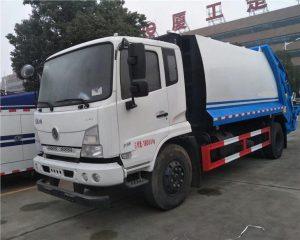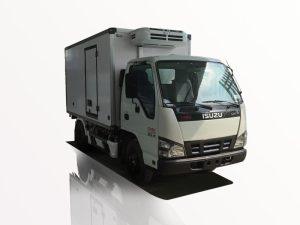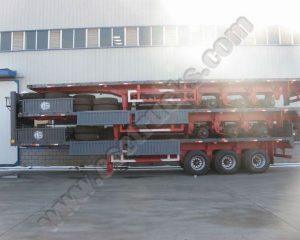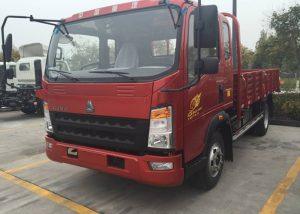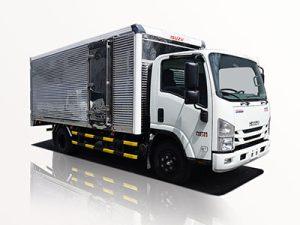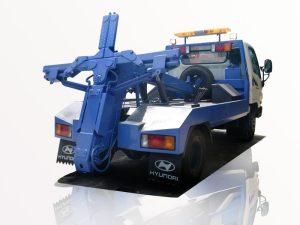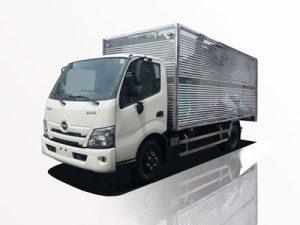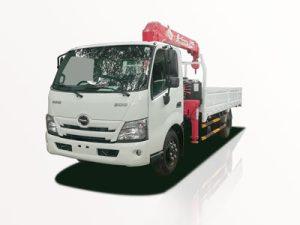Monday to Saturday - 8:00 -17:30
Roll Off Boxes: A Comprehensive Guide to Your Waste Management Needs
In our modern world, waste management has become a pressing concern, and roll off boxes have emerged as an efficient solution for both residential and commercial projects. Whether you’re undertaking a home renovation, cleaning out an attic, or managing construction debris, understanding roll off boxes can simplify the process significantly. This article will delve deep into what roll off boxes are, how they function, types available, benefits, costs, and essential tips for choosing the right one.
What are Roll Off Boxes?
Roll off boxes, also known as roll off dumpsters, are large steel containers designed for collecting and transporting waste and recyclable materials. They come in various sizes and are typically delivered by specialized trucks that roll them off the back for easy placement. These boxes are popular in construction, remodeling, and large cleanup projects due to their convenience and efficiency.
How Do Roll Off Boxes Work?
Understanding how roll off boxes work is essential for anyone considering their use. When you rent a roll off box, here’s what happens:
1. Delivery and Placement
A waste management company delivers the roll off box to your specified location. The driver uses a truck equipped with a hydraulic system to roll the box off the truck, placing it precisely where you need it.
2. Filling the Box
After placement, you can fill the box with acceptable materials. It’s important to check what items are allowed to avoid any extra fees or complications. Most companies provide guidelines and restrictions.
3. Pickup
Once you’re done filling the box, you contact the rental company to arrange for pickup. The truck returns, rolls the box back onto the truck, and transports it to a landfill or recycling facility.
Types of Roll Off Boxes
Roll off boxes come in various sizes, each suited for different purposes. Understanding these sizes is crucial in selecting the right one for your project.
1. Common Sizes
| Size (Cubic Yards) | Dimensions (L x W x H) | Best For |
|---|---|---|
| 10 | 12′ x 8′ x 3.5′ | Small cleanouts, garage cleanouts |
| 20 | 22′ x 8′ x 4′ | Medium renovations, landscaping projects |
| 30 | 22′ x 8′ x 6′ | Large renovations, commercial projects |
| 40 | 22′ x 8′ x 8′ | Construction sites, large cleanups, industrial projects |
2. Specialized Roll Off Boxes
Some companies offer specialized roll off boxes designed for specific materials such as:
- Concrete Hauling: These containers are reinforced to handle the heavyweight of concrete waste.
- Yard Waste: Designed for organic materials like leaves and branches, often with additional ventilation.
- Hazardous Waste: Specifically designed for chemicals or electronic waste, ensuring safe transport and disposal.
The Benefits of Using Roll Off Boxes
Choosing to use roll off boxes has numerous advantages that can streamline your waste management processes. Here are some benefits to consider:
1. Convenience
Roll off boxes are delivered directly to your site, reducing the need for multiple trips to a landfill. You have a central location to deposit waste, making cleanup much easier.
2. Size Options
With various sizes available, you can choose a box that fits your project’s needs without paying for unnecessary space.
3. Cost-Effective
Renting a roll off box can often be more cost-effective than hiring labor to haul waste or making repeated trips to disposal sites.
4. Environmentally Friendly
Many waste management companies ensure that recyclables are processed appropriately, promoting environmental sustainability.
Cost Factors of Roll Off Boxes
The cost of renting a roll off box can vary significantly based on several factors. Understanding these can help you budget accordingly.
1. Size of the Box
Generally, larger containers cost more to rent. Assess your waste volume to avoid renting a box that is too large or too small.
2. Rental Duration
Most companies charge a flat rate for a rental period (commonly 7-14 days). Additional days may incur extra charges.
3. Weight Limits
Roll off boxes come with weight limits. Exceeding this limit can lead to additional fees. It’s essential to understand what’s included in your rental.
4. Location Fees
Geographic location can also affect prices, as companies factor in transport costs. Urban areas may have different pricing compared to rural locations.
Practical Tips for Using Roll Off Boxes
To make the most out of your roll off box rental, consider the following practical tips:
1. Understand What You Can and Cannot Dispose Of
Always check the list of prohibited items to avoid fines. Common items often not allowed include hazardous materials, electronics, and certain appliances.
2. Maximize Space
Fill your box strategically. Break down large items and pile lighter materials on top to maximize space usage.
3. Have Clear Accessibility
Ensure that the delivery truck has ample space to drop off and pick up the roll off box. Keep the area clear of debris and vehicles.
4. Monitor Weight
Keep track of what you’re putting in the box to avoid exceeding weight limits, which could incur extra charges.
Common Uses for Roll Off Boxes
Roll off boxes are versatile and serve a multitude of purposes. Here are some of the most common applications:
1. Home Renovations
Renovations can generate a significant amount of waste, from drywall to old furniture. A roll off box allows homeowners to manage debris effectively.
2. Commercial Construction
Construction sites generate even more waste. Using roll off boxes helps contractors manage materials efficiently, keeping the site organized.
3. Cleanup Projects
Whether it’s a community cleanup or a personal project, having a roll off box aids in the swift collection and disposal of refuse.
4. Landscaping Projects
Yard waste such as branches, grass clippings, and soil can be easily collected in a specialized roll off box.
Frequently Asked Questions (FAQs)
1. How long can I keep a roll off box?
This depends on the rental agreement but typically you can keep it for 7-14 days. Extra fees may apply for additional days.
2. Do roll off boxes come in different colors?
Yes, while the base color is often standard (such as green or orange), some companies offer customizable options.
3. Can I place the roll off box on my driveway?
Yes, but you should ensure you have the property owner’s permission if it’s not your own, and it’s a good idea to check local regulations.
4. What happens if I overload the roll off box?
Overloading the box can result in additional fees, and the waste may not be picked up until it’s compliant with weight limits.
5. How do I know what size box to rent?
Estimate the volume of materials you will be disposing of and consult your rental company for guidance on the best size.
6. Are roll off boxes environmentally friendly?
Many waste management companies have recycling programs in place, ensuring that a significant portion of the waste is processed sustainably.


